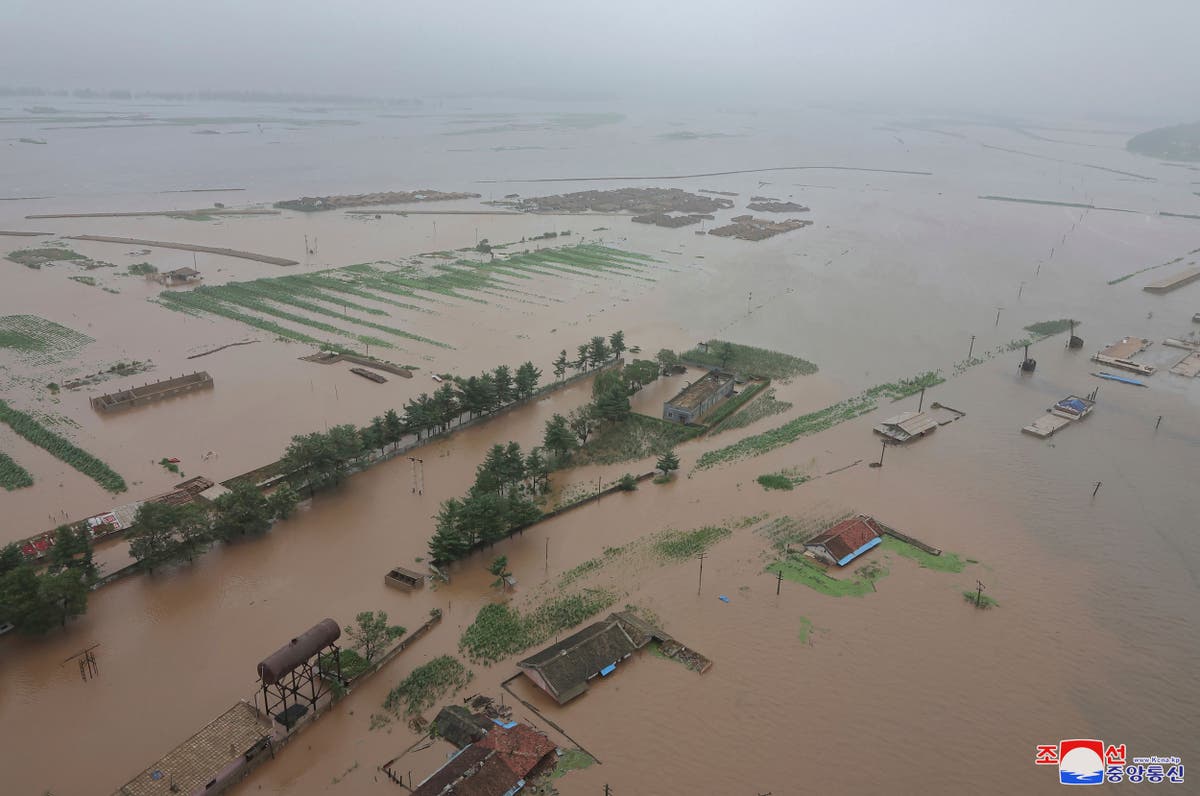North Korea will not seek outside help to recover from floods that devastated areas near the country’s border with China, leader Kim Jong-un said as he ordered officials to bring thousands of displaced residents to the capital to provide them better care.
Mr Kim said it would take about two to three months to rebuild homes and stabilise the areas affected by floods. Until then, his government plans to accommodate some 15,400 people — a group that includes mothers, children, older adults and disabled soldiers — at facilities in Pyongyang, North Korea’s official Korean Central News Agency said on Saturday.
KCNA said Kim made the comments during a two-day trip to the northwestern town of Uiju through Friday to meet flood victims and discuss recovery efforts. The agency gave Mr Kim its typical effusive praise, saying the visit showed his “sacred leadership” and “warm love and ennobling spirit of making devoted service for the people”.
State media reports said heavy rains in late July left 4,100 houses, 7,410 acres of agricultural fields, and numerous other public buildings, structures, roads and railways flooded in the northwestern city of Sinuiju and the neighbouring town of Uiju.
The North has not provided information on deaths, but Mr Kim was quoted blaming public officials who had neglected disaster prevention for causing “the casualty that cannot be allowed”.
Traditional allies Russia and China, as well as international aid groups, have offered to provide North Korea with relief supplies, but the North hasn’t publicly expressed a desire to receive them.
“Expressing thanks to various foreign countries and international organisations for their offer of humanitarian support, (Mr Kim) said what we regard as the best in all realms and processes of state affairs is the firm trust in the people and the way of tackling problems thoroughly based on self-reliance,” KCNA said.
Mr Kim made similar comments earlier in the week after Russian president Vladimir Putin offered help, expressing his gratitude but saying that the North has established its own rehabilitation plans and will only ask for Moscow’s assistance if later needed.
While rival South Korea has also offered to send aid supplies, it’s highly unlikely that the North would accept its offer.
Tensions between the Koreas are at their highest in years over the North’s growing nuclear ambitions and the South’s expansion of combined military exercises with the United States and Japan.
The North had also rejected South Korea’s offers for help while battling a Covid-19 outbreak in 2022.
During his recent visit to Uiju, Mr Kim repeated an accusation that South Korea exaggerated the North’s flood damages and casualties, which he decried as a “smear campaign” and a “grave provocation” against his government.
Some South Korean media reports claim that the North’s flood damages are likely worse than what state media have acknowledged and that the number of deaths could exceed 1,000.

